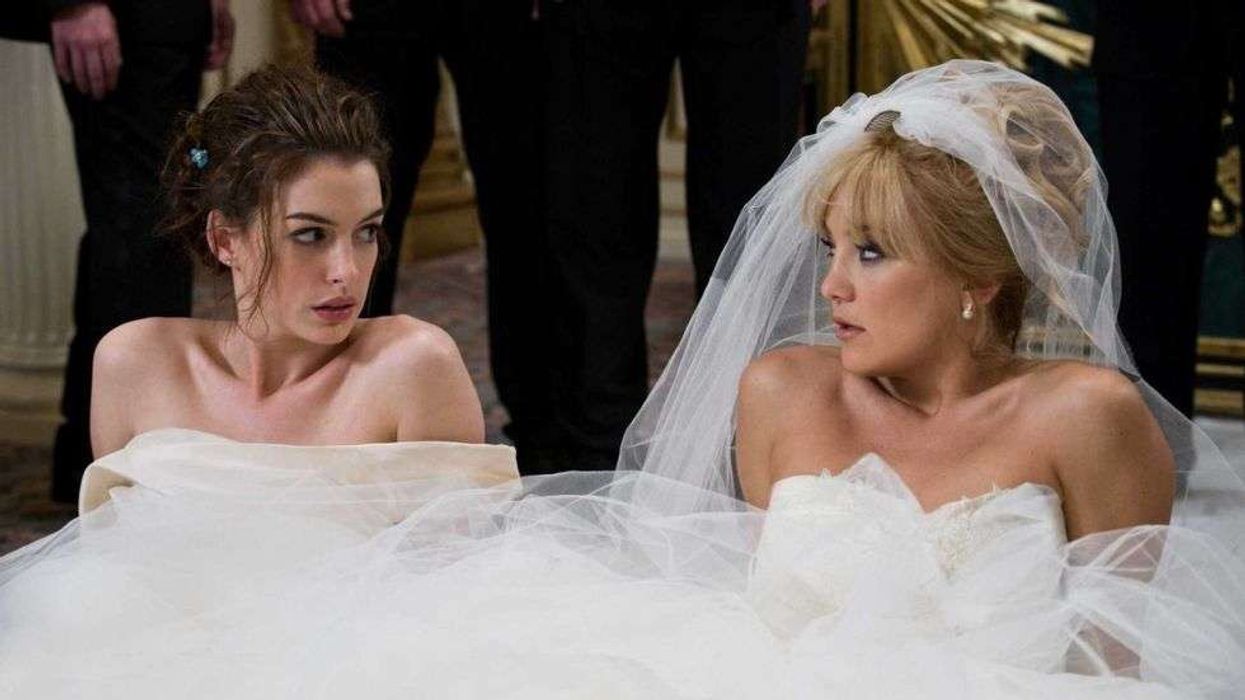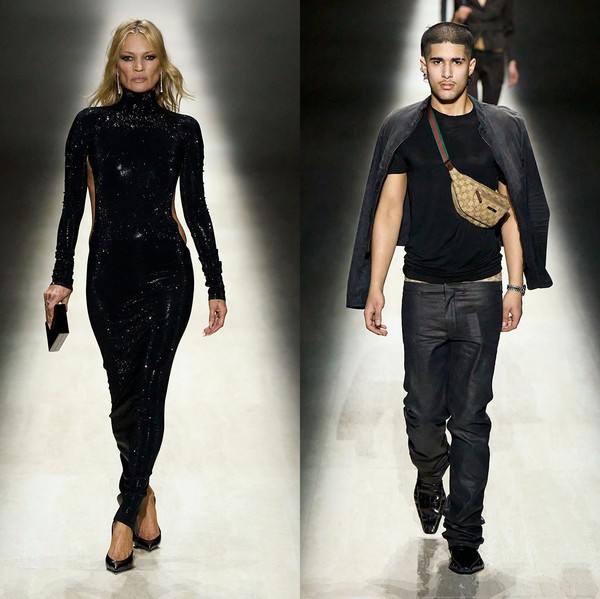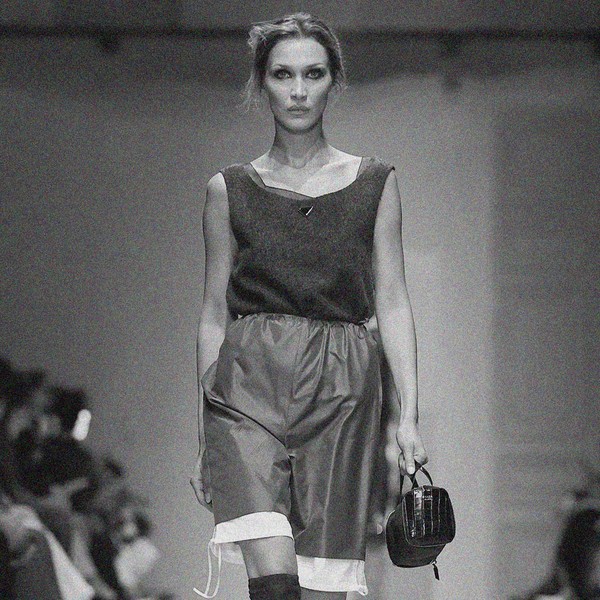Afraid of Becoming a Bridezilla, I Accidentally Became a Chillzilla
Are you traumatizing your wedding party with aggressive indecisiveness?

We all know what a bridezilla is: the demanding, histrionic bride who needs everything perfect on her special day… or else. With the proliferation of early-2000s reality TV shows dedicated to exposing the phenomenon (see: Say Yes To The Dress, or the aptly-named Bridezilla) combined with the heyday of “Cool Girl” trends in the later aughts, many millennials learned that being overly dictatorial and fussy was the worst crime a bride could commit. Now old enough to be brides themselves, our generation has created a new monster: the chillzilla. I was blissfully unaware of this term–until I got called one.
I went into my wedding planning process determined not to be a bridezilla. I didn’t logically think I was in danger of being that way–I’d like to think I’m not a horribly persnickety or demanding person, particularly when it comes to requests or expectations of other people–but I’d seen plenty of previously normal people go that route and was determined to not do anything that could even edge on “bridezilla-y.” I was set on not micromanaging or being a perfectionist, a goal that was actually pretty easily achieved when we decided to have our wedding in another country and could only do so much from afar anyway. Likewise, I’d been told by every married person I knew that there will always be something at the wedding that doesn’t go to plan, so there’s no point stressing about minute details anyway. Thus, I’d like to say I took the anti-bridezilla stance purely for my own peace of mind. However, if I’m honest, it was absolutely more out of concern for how I would look to others. Which was odd, because I love hosting and event planning, and would never be ashamed of being a fastidious and dedicated party planner in a normal context. Why was this situation so different?
I did everything I could to be the “cool bride.” I made a rule that no one in the party could get anything for the ceremony that they wouldn’t wear again. I made the official bridal party color black and told them they could do absolutely anything they wanted within that. I didn’t have an engagement party or bridal shower to minimize event fatigue. I kept all planning quandaries to myself, along with all the stresses about guest lists and family drama. In my head, I was absolutely killing it. Finally, one day, on about the fifth round of some party members trying to get my sign-off on their potential outfit choices, one very nicely and patiently said I needed to make a call, while another joked to “not be a chillzilla.”
I was mortified. Me, a zilla? Any kind of zilla? Preposterous! I’m the chillest! However, I could not deny the logic of what they were saying. If I’ve learned one thing from Kitchen Nightmares, it’s that a lack of centralized leadership is the kiss of death for any endeavor, and that’s exactly the situation I’d created. For example, I myself would never have felt comfortable as a bridesmaid just showing up wearing something that hadn’t been approved ahead of time. Clearly, I had run so far from bridezilla territory that I had gone overboard in the other direction and was now just being obnoxiously noncommittal and uninvolved. There’s not being demanding, and then there’s a failure to provide direction; I had unwittingly backed into the latter camp.
I tried to redeem myself on that front and became more open to their requests for opinions and direction. I found that, unsurprisingly, the more specific I was about what I wanted, the more likely I was to get it. I made the Pinterest boards, I was active in the group chat. I started openly talking about my stresses about family and other drama. I had told myself before that I would not embarrassingly impose my wedding drama on others; weddings are totally optional, so if I was stressing myself out, I had no one to blame but myself. In actuality, I’d always gone to my friends for support and advice in the past, so there was no logical reason that my nuptials should be any different.
In brainstorming this piece, I asked my bridesmaid/best man–who also happens to be a therapist–if he could give me some more examples of when I was chillzilla. His answer surprised me: “I didn’t really see it that way, because I understood where you were coming from. I know you have trouble advocating for yourself.” He wasn’t wrong. More often than not I tend to keep my own needs un-prioritized and close to the vest. If anything, I am someone who avoids confrontation until the resentment reaches a boiling point, after which I just ghost on the situation (I know, it’s not great). My original fear of being a bridezilla was seeming more nonsensical the more I thought about it. In fact, I started to see something empowering about the bridezillas. Their ability to self-advocate was almost inspiring…
I immediately snapped myself out of the crazy talk. Bridezillas are the worst! They’re abusive! They’re bossy and frivolous and… My brain went off generating more gendered insults. They’re shrill. They only care about parties and relationships. They’re shallow. I realized the depth of my own retro, early-2000s internalized misogyny. Let’s be honest, it’s not that as a society we’re that concerned with polite and undemanding behavior. We idolize difficult, abusive men, who are just “passionate” and working on such important things that they needn't worry about trivial stuff like civility or who they hurt and offend (ex. men can throw seemingly endless sports-related tantrums, but when Serena Williams throws a racket in disappointment, it’s front-page news). But weddings are a girl thing, and you don’t get a behavioral pass based on the passion exception for stuff like that. Sure, it’s fine to cry and riot when a sports team that you don’t even play for loses, but god forbid you have emotions when a big event marking a life milestone that you’ve worked hard on isn’t going to plan.
Look, I am absolutely not making excuses for abusive or immature behavior. I’ve heard of some horrific bridezillas, and their behavior absolutely deserves to be called out. I’m just saying that maybe the advent of the chillzilla, clearly born of the paranoia of not being a bridezilla, might just be based on deeply misogynistic and patriarchal expectations for women’s behavior, particularly when they’re in any kind of hyper-visible or leadership-oriented roles, let alone advocating for themselves and their desires in any way. Unfortunately, women’s behavior is subject to strict policing in basically every context. It’s no wonder that the triple-whammy of being in a leadership role, for a “feminine” thing like a wedding, and doing so for one’s own benefit presents brides with the prospect of being exposed to extreme societal judgment.
The worst part of this is, it’s patriarchy that is responsible for weddings being traditionally a big deal for women in the first place. Historically, marriage was likely the most or even only meaningful thing a woman could “achieve” in life, and the one time that her presence in the world was treated as impactful or even valuable outside of her immediate household (and often within it). It’s patriarchy that has created the emphasis on weddings, and it’s patriarchy that has punished women’s enthusiasm for the one thing they were allowed. Just like the chillzilla-bridezilla dichotomy, it’s a lose-lose for women.
Again, I am not advocating for brides to be as demanding and difficult as possible–see this article for tips on the ideal bridal approach. However, if you’re planning a wedding and constantly worried about coming off as the dreaded “bridezilla” to the extent it’s holding you back, ask yourself where that fear comes from. Question whether it’s rooted in anything reasonable, or based on a fear of being shamed for caring about your wedding in the first place (a shame that is notably never placed on men, who are seemingly encouraged to be performatively indifferent or even proactively negative about the whole thing, a phenomenon that deserves its own article). You don’t feel the same gendered shame about throwing a birthday party; why should a day that doesn’t come around every year, that celebrates you, your partner, and your families, be any different? While the chillzilla route seems like a shield against societal pressure and judgment, it won’t do anything but make things harder on your guests, your bridal party, and yourself. Don’t let the misogynistic narrative about weddings ruin your own earnest enjoyment of a genuinely special celebration. Give yourself at least one day off from patriarchal catch-22s; if there’s one thing worth being a bridezilla about, it’s our right to do exactly that.
Header Photo: Bride Wars, 20th Century Fox Studios
Want more stories like this?
9 Silky Sets, Slips & Intimates For Every Bridal Occasion
An Argument for Destination Weddings
How to Keep Friends & Influence People: A Wedding Season Survival Guide




